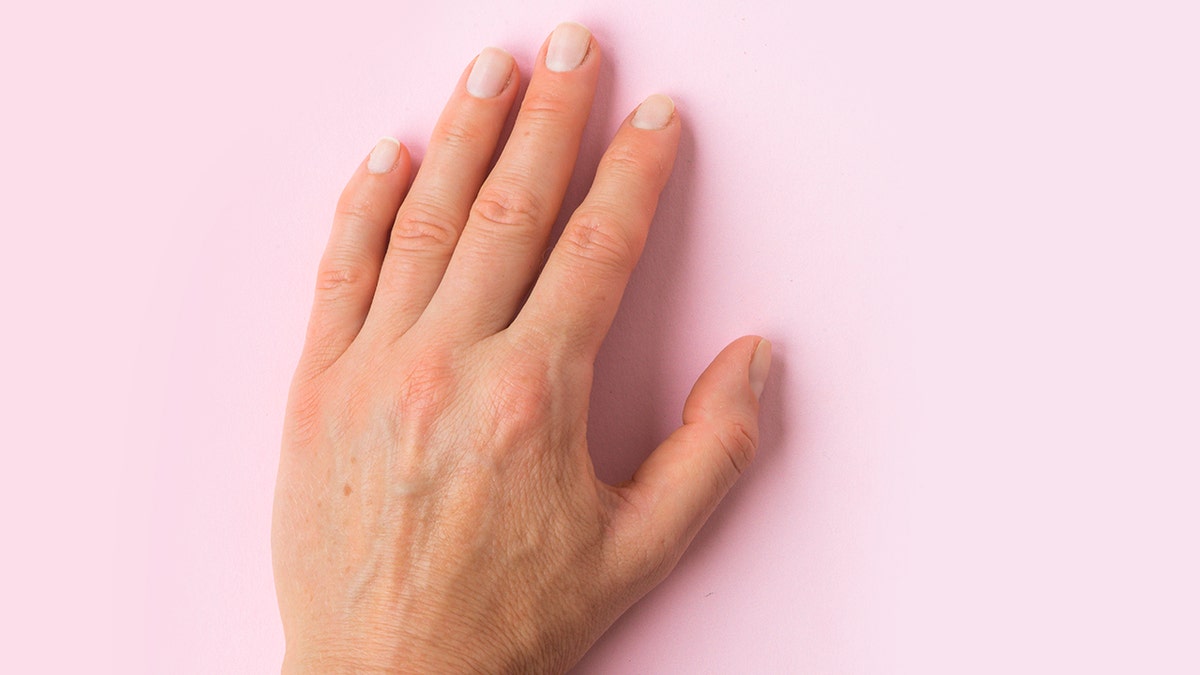Left-handedness and certain neurological disorders could go hand-in-hand, a new study revealed, though the researchers and others acknowledged potential limitations.
While about 10% of people in the world are left-handed, people with autism are 3.5 times more likely to have the trait, according to an international team of researchers that analyzed data from over 200,000 individuals.
The study, published in the journal Psychological Bulletin, indicated that left- and mixed-handedness also appear more often in people who have diagnoses such as schizophrenia, autism and intellectual disability.
RISING AUTISM RATES NOW AFFECT 3% OF CHILDREN, SAYS CDC REPORT
Mixed-handedness refers to a situation in which people may use their left hand for a certain task and their right hand for others, according to psychology experts.
This is slightly different from ambidexterity, which is the equal use of both hands.

The study showed that left- and mixed-handedness appear more often in people who have certain diagnoses like schizophrenia, autism and intellectual disability. (iStock)
"The key takeaways of this study are that alterations in hand preference from the norm (i.e., right-handedness) are associated especially with psychiatric and psychological conditions that affect the language system (e.g., dyslexia or schizophrenia) or affect neurodevelopment through an early age of onset (e.g., autism or ADHD)," lead author Dr. Julian Packheiser told Fox News Digital.
He is a researcher at the Institute of Cognitive Neuroscience at Ruhr University Bochum in Germany.
"Correlation doesn’t imply causation — and being left-handed does not mean someone will develop autism or schizophrenia."
Not all neurological conditions showed a link to people's dominant hand.
Depression and dyscalculia (a math learning disability), for example, showed no meaningful difference in hand preference compared to control groups, the study found.
Language factor
The researchers also determined that "atypical handedness" may be associated with long-term linguistic symptoms like stuttering and dyslexia.
"In most people, the dominant side of their brain is typically where speech, language, logical thought processing and hand preference is located," Dr. Earnest Lee Murray, a neurologist with West Tennessee Medical Group, told Fox News Digital.
He was not involved with the new study.
CHILDREN WITH AUTISM MAY SEE SPEECH IMPROVEMENTS WITH OFF-LABEL PRESCRIPTION DRUG
"People who are left-handed or ambidextrous often don’t have such a dominant one-sided brain — rather, the key portions of language can be divided between both sides," Murray also said.
The study also examined the likelihood of atypical handedness in clinical populations, or groups of people diagnosed with a specific set of health conditions compared to a control population.

It appears that the earlier a disorder's symptoms emerged, the more frequently researchers saw cases of left- and mixed-handedness. (iStock)
"We suspected that left- and mixed-handedness could be associated with disorders whose symptoms are related to language," said Packheiser in a press release about the study.
"Language, like handedness, has a very one-sided location in the brain, so it stands to reason that the development of both and their disorders could be linked."
Timing is key
The researchers also considered other factors that could come into play, such as the age at which a person might exhibit symptoms.
CLICK HERE TO SIGN UP FOR OUR HEALTH NEWSLETTER
It appears that the earlier a disorder’s symptoms emerged, the more frequently researchers saw cases of left- and mixed-handedness.
The researchers hypothesized that left- and mixed-handedness could be associated with diseases that occur very early in life, because the dominant hand is determined at a very early age – possibly even before birth.
CLICK HERE TO GET THE FOX NEWS APP
In the womb, thumb-sucking at 10 weeks' gestation is heavily linked to which hand will be preferred later in life, they noted.
The connection could help experts potentially understand the way brains are organized and how they develop.

The new study comes with potential limitations. Not all neurological conditions show a link to the person’s dominant hand, according to experts. (iStock)
"The study has implications when understanding ways of finetuning the neurorehabilitation of patients with one-sided brain conditions, such as stroke, multiple sclerosis or traumatic brain injury," Murray said.
Potential limitations
Jonathan Alpert, a Manhattan-based psychotherapist and author, said the study was "interesting," though he emphasized its limitations.
"Correlation doesn’t imply causation — and being left-handed does not mean someone will develop autism or schizophrenia," Alpert, who was not involved in the study, told Fox News Digital.
"Handedness is just one of many factors that can be associated with neurological traits, and these findings should be interpreted with caution to avoid unnecessary alarm or stigma."

Depression showed no meaningful difference in hand preference compared to control groups, the study found. (iStock)
Alpert called for more research to understand the relationship, if any, between handedness and mental health.
Lead author Packheiser agreed the results are "purely correlational."
"We have no causal evidence that developing a psychiatric disorder linked to language or neurodevelopment causes a change in handedness, or whether changes in handedness cause any disorder," he told Fox News Digital.
For more Health articles, visit www.foxnews.com/health
"Individuals from the general public should therefore never be alarmed if their child prefers to use the left hand," the researcher said.
"But given the rise of mental disorders in the population, it is important to better understand them."
Khloe Quill is a lifestyle production assistant with Fox News Digital. She and the lifestyle team cover a range of story topics including food and drink, travel, and health.
.png)
 German (DE)
German (DE)  English (US)
English (US)  Spanish (ES)
Spanish (ES)  French (FR)
French (FR)  Hindi (IN)
Hindi (IN)  Italian (IT)
Italian (IT)  Russian (RU)
Russian (RU)  4 hours ago
1
4 hours ago
1









Comments